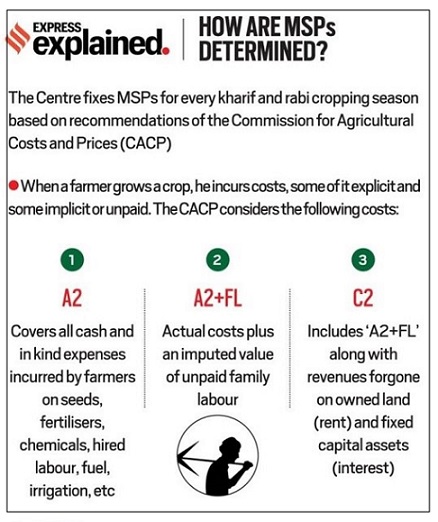7667766266
enquiry@shankarias.in
Delhi Chalo march is spearheaded where farmers from Punjab, Haryana, and Uttar Pradesh are protesting over many demands such as legalising Minimum Support Prices (MSPs).
|
Major demands of the protest- 12 point agenda of farmers |
|
To know about the state of farmers in India click here
|
Benefits of MSP |
Issues with MSP |
|
|

References